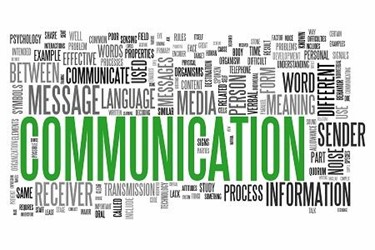5 Communication Essentials For Leaders
By Janet M. Shlaes, PhD

Leadership is all about effective communication, whether selling a product or idea, inspiring followers to engage in an organizational vision, mission or strategic plan, or motivating others to take specific actions. Effective communication is both science and art. These five essential communication qualities serve to empower leaders to communicate in a concise, engaging, authentic, and powerful manner, leading to next level results.
Clarity
When your message is clear, concise, and engaging, you command the attention of others. This is relevant whether your goal is to communicate with an audience of one or many. Clarity requires focus regarding the content and intended impact of your message or pitch. Wordiness is extremely boring and tends to elicit people mentally checking out. Conciseness keeps you focused on your topic and intended outcome. It also serves to engage your listeners. Clarity helps ensure your audience is attentive and wants more, not less.
Credibility
Credibility is conveyed through a combination of preparation and presence. When you are well prepared in terms of aligning the content of your message or pitch with audience needs and goals, you can focus on your audience and adjust your style and message when indicated. Preparation requires a high degree of self- and other-awareness. Self-awareness concerns your intended outcome goals and what needs to be communicated in order to increase the likelihood of reaching your goals. Other-awareness requires research into your audience's needs. Specifically, what unmet needs might they have? What keeps them up at night? How might you be a resource or provide resources that can lead to their needs being met?
Authority
How you deliver your message communicates confidence and your physical presence can speak volumes in terms of how you are perceived/experienced by others. Specifically, your posture, eye focus, facial expressions that align with your message, gestures that connect to the message content, and the pitch, volume and pace of your message can communicate knowledge and authority to your audience. Start out strong, stay succinct, focus on your audience, and own your voice, physicality, and message.
Authenticity
Preparation is key to demonstrating authenticity. When you’re prepared, you can relax into your message in a professional and authentic manner. People know when you are just repeating words or are passionate about your message. As you convey your passion for your message and your recognition of and respect for your audience’s needs, you express your humanity in a manner that is approachable and increases audience engagement.
Active Listening
People often mistake listening for passivity. This could not be further from the truth of what listening actually is and the impact it has on communication. The listening I am referring to is active listening — for what is and isn’t being said. Active listening has a dual purpose; it provides you with ongoing updated information and creates the space for others to feel that their needs are being heard, respected, and validated. Active listening provides the foundation for effective leadership, as well as for strategically altering your communication style and message in the moment. Active listening skills are essential for communication flexibility, adaptability, and optimal impact.
Summary
Effective communication is a leadership essential. Mastery requires self- and other-awareness, focus, intention, respect for your audience and, most importantly, practice. Each communication essential — clarity, credibility, authority, authenticity, and active listening — is critical for empowered and empowering leadership. Which of these essentials could you benefit from intentionally focusing on and practicing? What one action step could you take today to strengthen your communication skills and results?
About The Author
Dr. Janet Shlaes has over 20 years of transformational results in the organizational, leadership, career, and life-design realms. In addition to holding a variety of leadership positions in the financial and non-profit arenas, Janet creates and facilitates customized programs, trainings, seminars, and retreats focusing on organizational, change management, life-design, and leadership development for corporate and non-profit arenas.
